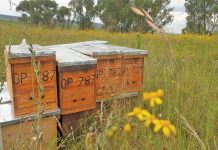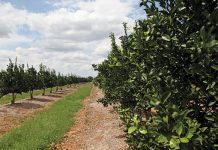Namibia’s land reform programme is a “zero-sum game” that merely swaps one form of poverty for another, according to an independent report on attempts to find an equitable solution to racially skewed land ownership.
The Legal Assistance Centre, a human rights NGO based in Windhoek, says in the report entitled No Resettlement Available, “Most [resettlement farms] are not doing very well.” The size of the farms allocated and the agricultural methods practised are among the problems identified. “Black farmers get smaller units than white farmers held, but remain stuck with the same plan to be livestock farmers,” says the report. “Since even the larger white farms were not very profitable, this apportionment both sets up black farmers to fail, and fails to reconceptualise a new Namibian agricultural order that could feed the growing population and provide reasonable incomes to new black farmers.” Sakkie Coetzee, executive manager of the Agricultural Union, says the country’s predominantly dry climate and paucity of surface water require economies of scale to produce sustainable farming.
The policy of subdividing farms is “devastating” and under such a regime the new farmers “would never make it”. Coetzee, whose union officially supports land redistribution, attributes the policy of creating smaller farming plots to the influence of such institutions as the World Bank and its one-size-fits-all approach, which means that although a small plot in Ghana might be sustainable, this is not the case in Namibia.
The report also identifies an unpalatable conundrum: “Any ‘average’ resettlement process moves five ‘disadvantaged’ families to a farm at the same time as it removes six farmworkers and their families to homelessness and poverty … each resettlement process displaces as many as it resettles.” Even though poorly paid, previously farmworkers’ basic needs were met: a regular salary, housing and permission to have chickens, smallstock or cattle. All of this disappears on a Namibian resettlement farm. – Irin news








